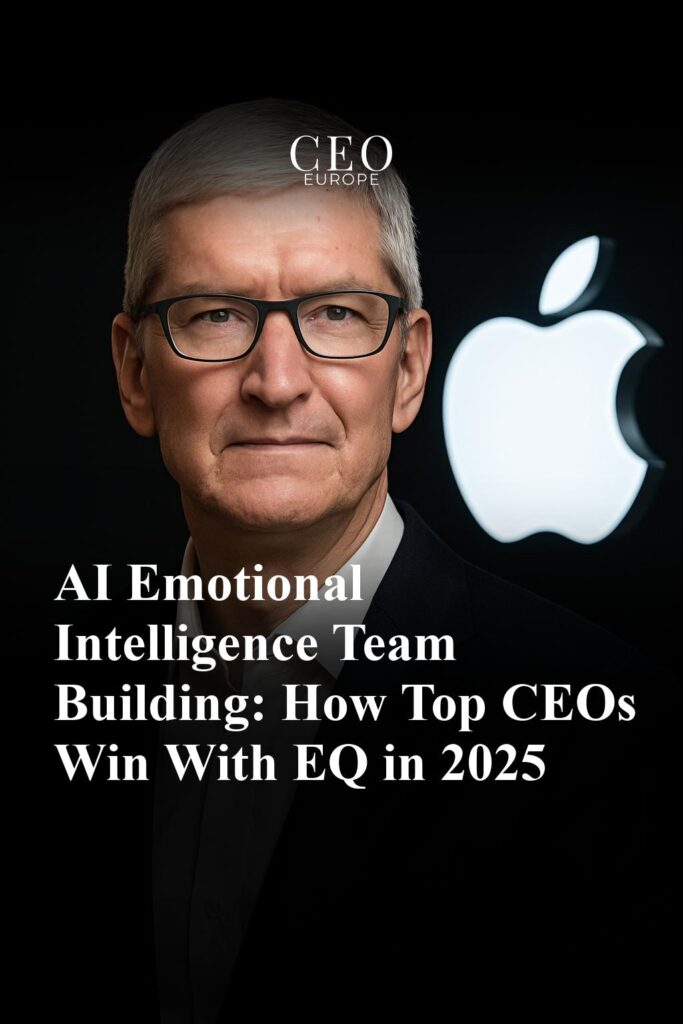1. Introduction
AI emotional intelligence team building is revolutionizing how organizations foster collaboration and innovation. As workplaces evolve, emotional intelligence (EQ) has become increasingly important, complementing technical skills and reshaping leadership strategies. The key to thriving in future workplaces lies in a balanced emphasis on AI-driven insights and emotional understanding.
Top CEOs recognize that EQ fuels empathy, communication, and trust within teams—qualities essential for navigating complexity and change. By leveraging AI to assess and enhance emotional intelligence, leaders unlock deeper team cohesion and resilience. This synergy is not just a trend; it’s a foundational element that will define success in the years ahead.
Understanding the future of team management requires acknowledging how emotional intelligence at work integrates with AI, creating smarter, more adaptive organizations ready for 2025 and beyond.
2. Background
Emotional intelligence refers to the ability to perceive, understand, and manage emotions in oneself and others, which is critical during recruitment and team building. When organizations include emotional intelligence at work as a recruitment criterion, they select candidates who contribute positively to workplace culture and collaboration.
Historically, team building focused mainly on skills and task fit. However, companies with high-EQ workforces, like those featured in recent case studies, consistently outperform competitors in employee retention, innovation, and adaptability. These companies show that EQ enhances interpersonal dynamics, reducing conflicts and fostering a cooperative environment.
One analogy that illustrates this is comparing a team to a jazz band: technical skill is akin to knowing your instrument, but emotional intelligence is the ability to listen and harmonize with others, creating a unified performance.
3. Trends
A key trend in AI emotional intelligence team building is the increased use of AI in recruitment, where algorithms analyze not just resumes but emotional cues from interviews and assessments. This enables a more holistic view of candidates beyond technical qualifications.
Leaders are placing greater focus on emotional intelligence as a leadership competency, recognizing it as vital for managing diverse and often remote teams. The rise of remote work has prompted a shift towards developing emotional skills that bridge physical distances and foster genuine connection.
This trend underscores the future of team management, emphasizing emotional agility alongside cognitive skills. The growing evolution of AI tools enables more precise identification and cultivation of EQ, helping organizations navigate the complexities of modern work environments.
4. Insights
Emotional intelligence at work significantly shapes team dynamics by improving cooperation, conflict resolution, and morale. Teams with strong EQ perform better, adapting quickly to change and supporting each other through challenges.
Industry leaders such as Karan Khemani emphasize that “IQ in less than a decade will be commoditized,” shifting competitive advantage to emotional competencies. Satya Nadella echoes this sentiment, noting that the future belongs to teams exhibiting ownership, humility, and foresight.
Statistics support these views: high-EQ teams are shown to have 20% higher productivity and a 40% reduction in turnover rates. This data illustrates that emotional intelligence is not merely a \”soft\” skill but a measurable driver of business success.
For those interested in deepening leadership skills, exploring strategies on building competitive advantages can be insightful, as outlined in business moat strategies here.
5. Forecast
Looking ahead, the future of team management will be deeply intertwined with advances in AI emotional intelligence. Recruitment processes will increasingly incorporate AI tools that evaluate a candidate’s EQ alongside technical aptitude, ensuring balanced and effective teams.
By 2025, organizations will prioritize emotional competencies as core hiring criteria, transforming corporate culture to be more empathetic and resilient. This shift is expected to reduce turnover and enhance employee engagement dramatically.
Moreover, companies that master AI emotional intelligence team building will lead in innovation and adaptability. As AI evolves, emotional skills will become harder to replicate, solidifying their role as a sustainable competitive advantage. The workplace of the future will resemble a well-conducted orchestra where AI provides the sheet music and emotional intelligence shapes the harmony.
6. How-to
Implementing AI emotional intelligence team building strategies begins with integrating AI tools that assess emotional cues during recruitment, moving beyond traditional interviews. This approach helps identify candidates with strong interpersonal skills.
Hiring with a focus on emotional intelligence involves structured behavioral interviews and emotional assessments to evaluate empathy, self-awareness, and social skills. Training programs designed to boost EQ—such as workshops on active listening and conflict management—strengthen team cohesion post-hiring.
For organizations seeking to personalize support and development, embracing precision mental health AI can further enhance emotional well-being within teams. Discover how these innovations enhance care and performance here.
7. FAQ
What is emotional intelligence and why is it important for teams?
Emotional intelligence is the capacity to recognize and manage emotions in oneself and others. It fosters better communication, collaboration, and conflict resolution in teams, resulting in improved productivity and morale.
How can AI assist in evaluating emotional intelligence in candidates?
AI can analyze verbal and nonverbal cues during recruitment, using sophisticated algorithms to assess empathy, emotional regulation, and social skills more objectively than traditional methods.
What are the benefits of prioritizing EQ in team building?
Prioritizing EQ leads to reduced turnover, enhanced adaptability, stronger corporate culture, and better overall team performance, positioning organizations for sustainable success.
8. Conclusion
AI emotional intelligence team building is not just a buzzword but a transformative approach redefining how organizations cultivate effective teams. As EQ increasingly shapes recruitment and leadership, businesses that embrace this will thrive in the competitive landscape of 2025 and beyond.
Integrating emotional intelligence as a core value alongside AI-driven insights enhances team connection, creates resilient cultures, and drives innovation. The future of business success hinges on this synergy—encouraging all leaders to adopt AI emotional intelligence team building strategies as a foundational practice.
—
Sources and references
1. \”Don’t Just Hire the Smartest Candidate. Look for This.\” Entrepreneur.
https://www.entrepreneur.com/leadership/dont-just-hire-the-smartest-candidate-look-for-this/495079
2. \”Discover how precision mental health AI enhances personalized care through innovative AI solutions.\” CEO Europe.
https://ceoeurope.eu/business/precision-mental-health-ai-personalized-care/
3. \”Discover effective business moat strategies to gain a competitive advantage and ensure your firm’s long-term success.\” CEO Europe.
https://ceoeurope.eu/entrepreneur/business-moat-strategies-2025/

